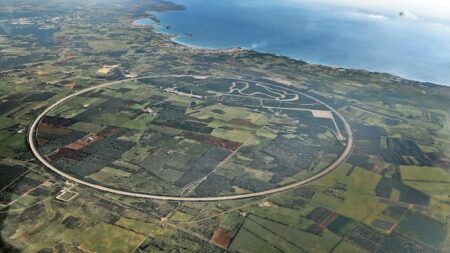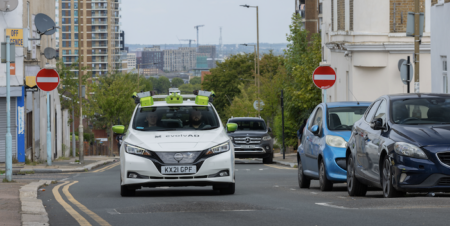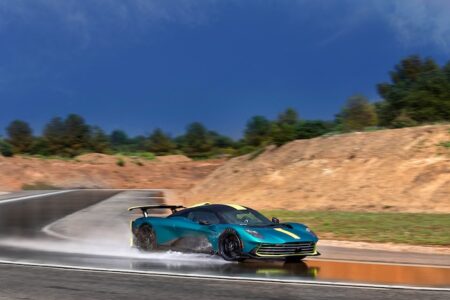The Bay Zoltán Research Centre in Hungary is offering open access to one of the world’s most advanced driver-in-the-loop (DIL) simulators. Alongside Bay Zoltán’s own research projects, external engineers and companies working on areas such as autonomous vehicles, human factors, driver assistance, vehicle dynamics, V2X, motorsports and electrification technologies can now have flexible access to a high-fidelity DIL simulator laboratory that the centre says is of a level that previously only available to vehicle OEMs and the largest Tier One suppliers.
The simulator is Ansible Motion’s Delta series S3 simulator, a technology which was launched in 2022 and won a 2022 Vehicle Dynamics International Award . The simulator features an open and modular architecture which is software agnostic, meaning it can operate seamlessly with almost any relevant automotive software package, such as Hexagon VTD (environment and traffic scenarios), Cosworth Pi Toolbox (telemetry and data analysis), AVL VSM (vehicle modelling) and AVL Model.CONNECT (model integration and co-simulation). Indeed AVL was a project partner for the simulator, providing key engineering services and software stacks that will directly support use cases ranging from ADAS and autonomous developments to high-performance vehicle dynamics and chassis development work.
Bay Zoltán Research Centre, which is part of the ZalaZONE automotive R&D park, expects that the Delta series S3 will play a key role in its future expansion. The automotive industry makes up a fifth of Hungary’s exports and 8% of its economic output, with Bay Zoltán set to provide a hub for the development and validation of cutting-edge automotive technology in the region. The centre is located close to the Austrian, Slovenian and Croatian borders, with facilities including a world-class proving ground that is attracting many European automotive manufacturers and suppliers.

Hungary’s Minister of Technology and Industry, László Palkovics, has stated that the country is aiming for all German premium manufacturers to be developing vehicles in Hungary by 2030. Bay Zoltán Research Centre and other companies in the ZalaZONE automotive R&D park will form a key part of this ambition. The infrastructure at Bay Zoltán alone enables vehicle modelling, scenario generation and environment simulation for passenger cars, commercial vehicles and motorsport applications, with options for customers to have bespoke cabins for a fully immersive experience. The first projects at the centre have included autonomous driving and ADAS developments.
“The automotive industry is advancing rapidly towards a digital transformation, having full systems designed and validated in simulated environments,” stated Bay Zoltán’s site manager, Márk Lelkes. “To promote digital twin development and complement our existing experience at Bay Zoltán, we invested in this highly sophisticated DIL simulator. For both our current and future requirements and the stringent demands of our customers, Ansible Motion’s Delta series S3 simulator was the perfect match.”
Kia Cammaerts, technical director and founder of Ansible Motion, is pleased with this latest client for the Delta S3. “Bay Zoltán Research Centre is a gateway to virtual product development, and it brings versatility and performance to key sectors of the automotive industry,” he stated. “Staffed by a knowledgeable and experienced team, Bay Zoltán’s facility delivers flexible, turnkey access to world-leading simulation tools that is drawing interest from Europe and beyond. It’s a privilege to be involved with this truly world-class centre for automotive development.”





